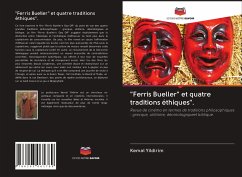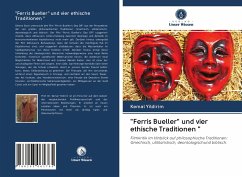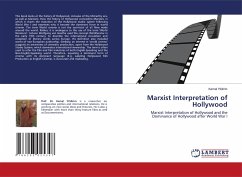
"Ferris Bueller" and Four Ethical Traditions"
Movie review in terms of philosophical traditions: Greek, Utilitarian, Deontological and Biblical
Versandkostenfrei!
Versandfertig in 6-10 Tagen
27,99 €
inkl. MwSt.

PAYBACK Punkte
14 °P sammeln!
This book examines the film "Ferris Bueller's Day Off" from the perspective of the four great philosophical traditions: Greek, Utilitarian, Deontological and Biblical. The film Ferris Bueller's Day Off implicitly suggests, Althusser's distinction between ideology and the aesthetic no longer holds in consumer-oriented capitalism. In addition, the film undermines Althusser's assertion that the schools are the most powerful ISA under capitalism, suggesting instead that mass culture now fulfills this function under late capitalism. Moreover, this reshuffling of the ideological hierarchy necessaril...
This book examines the film "Ferris Bueller's Day Off" from the perspective of the four great philosophical traditions: Greek, Utilitarian, Deontological and Biblical. The film Ferris Bueller's Day Off implicitly suggests, Althusser's distinction between ideology and the aesthetic no longer holds in consumer-oriented capitalism. In addition, the film undermines Althusser's assertion that the schools are the most powerful ISA under capitalism, suggesting instead that mass culture now fulfills this function under late capitalism. Moreover, this reshuffling of the ideological hierarchy necessarily produces a fresh set of concrete, historically specific contradictions. These contradictions, in turn, provide new possibilities for resistance and social change. Here is one of the most innocent movies in a long time, a sweet, warm-hearted comedy about a teenager, who skips school, so he can help his best friend win some self-respect. The therapy he has in mind includes a day's visit to Chicago, and after we've seen the Sears Tower, the Art Institute, the Board of Trade, a parade down Dearborn Street, architectural landmarks, a Gold Coast lunch and a game at Wrigley Field.












